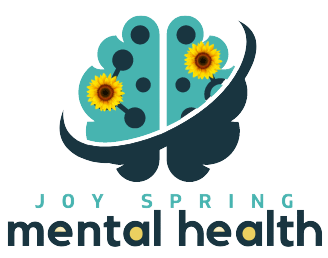A person’s mental health includes their emotions, thoughts, and well-being. People with mental health disorders can have difficulties thinking and acting. Mental illness symptoms may appear suddenly. Different people experience mental health issues at different levels of severity and frequency. When a mental health concern causes frequent stress and makes it difficult for a person to function normally, it becomes a mental illness. Therefore, it’s sometimes hard to pinpoint whether you’re experiencing a situation that might pass or need professional help to deal with it.
In almost all mental health cases, the severity of the problem can be lessened or even treated. It is possible to improve diagnosis and treatment if you seek help early. To seek support, you do not need to experience “serious” mental health issues. It’s important to remember that your feelings and experiences are valid, and you deserve support.

Possible indications:
Help is often the first step to getting and staying well, but knowing where to begin can be challenging. Feeling unsure and wondering whether to handle things alone is a common experience. Regardless of whether you know you are experiencing a mental health issue, it’s always ok to ask for help.
More quiet or withdrawn than usual:
A sudden withdrawal from life, especially if it is a significant change from your usual personality, could be an indication of a mental health disorder. Help is needed if a friend or loved one isolates themselves and refuses to participate in social activities.
Excessive high feelings:
Mania is characterized by extreme emotional highs and lows, where a person cannot control their behavior. It can be characterized by racing thoughts, rapid speech, irritability, and paranoia. It is possible that your friend or family member seems manic, overly happy, or excited. Their behavior might lead to impulsive decisions or large expenditures.
Strange or bizarre thoughts:
An individual might have mental health issues if they believe that they possess some special power or their thoughts or actions are controlled by someone else.
Being guilty or worthless:
An individual with a mental health disorder may feel like ‘It’s my fault,’ or ‘I’m worthless.’ You should seek help if your loved one often blames himself or herself for things that are not their fault.
Suicidal thoughts:
People who suffer from mental health issues may express the desire to hurt themselves or kill themselves. They may have injured themselves or been thinking about suicide. There are some people who may think about harming others.
Depression or unhappiness:
Depression can trigger feelings such as sadness, irritability, numbness, or lack of motivation, as well as tears all the time. This may include losing interest in a hobby or not enjoying something you usually want.
Changes in weight or appetite:
There are some people who may experience weight gain or rapid weight loss as a warning sign of mental health problems because they eat more or less than usual.
Physical Symptoms:
- Feelings of sweating, nausea, a rapid heartbeat, or trouble breathing, coupled with intense worries and fears.
- Sleep disturbance, either excessive or insufficient sleep.
- Feeling fatigued
- Sexual activity or sex drive changes, including engaging in risky behaviors.
- Observable changes in eating habits.
Finding Professional Help for Mental Illness:
Mental illness is more effectively treated than ever before. Shame, fear, and denial can sometimes prevent you from seeking help, as well as the belief that mental illness is a weakness. There is help available for people suffering from mental illness.
When you decide you need help with your mental health, it’s a good idea to start with your primary care physician. It is common for your doctor to refer you to a mental health professional that specializes in these issues. A psychiatrist, psychologist, or professional counselor can then suggest a therapy, lifestyle change, medication, or a combination of these treatments. It’s essential to figure out what works for you because what works for one person may not work for another.
A person’s treatment should be tailored to their specific needs based on a careful assessment of their situation. To prevent early symptoms from progressing into serious disease, treatment options include counseling, vocational and educational support, participation in multifamily problem-solving groups, and medications. Attending therapy is beneficial to many people with mental health conditions. Counselors can help you develop strategies to cope with symptoms and discuss your personal goals.
Mental Health Services:
Specialized mental health services are available to those with serious mental illness, as well as those experiencing a psychiatric crisis.
There are mental health services available 24/7. In order to provide you with the best care, personnel at the mental health service will ask you about the issue, including the reason you contacted the service and whether you have used the service in the past. It helps staff decide which service you will benefit from most.


